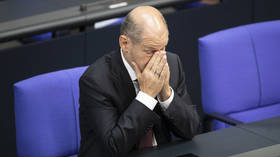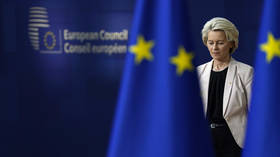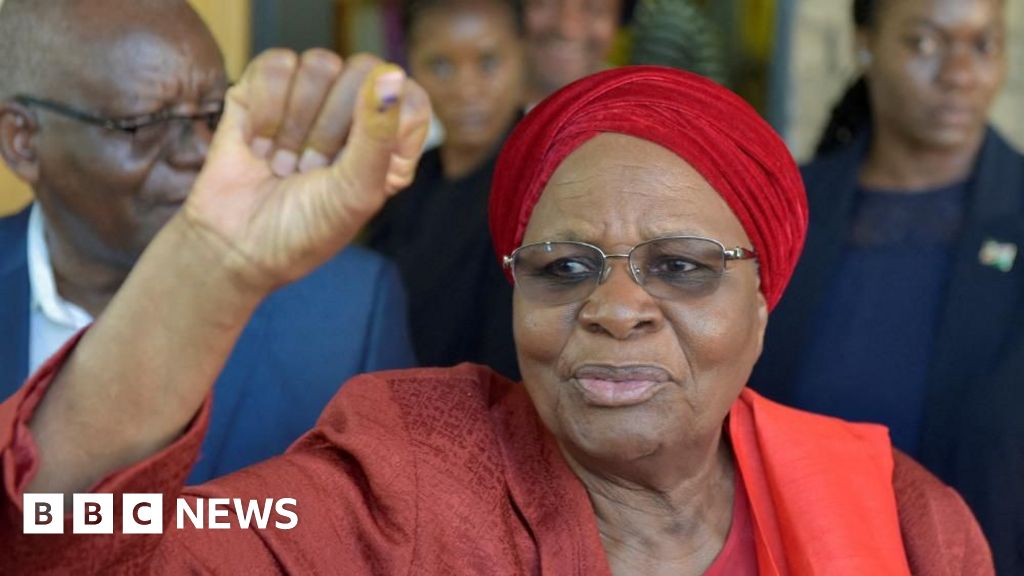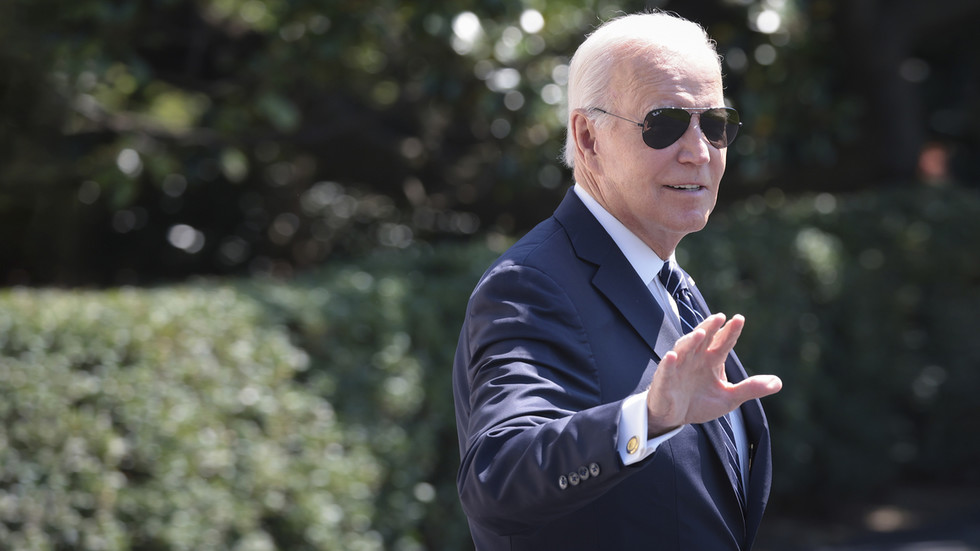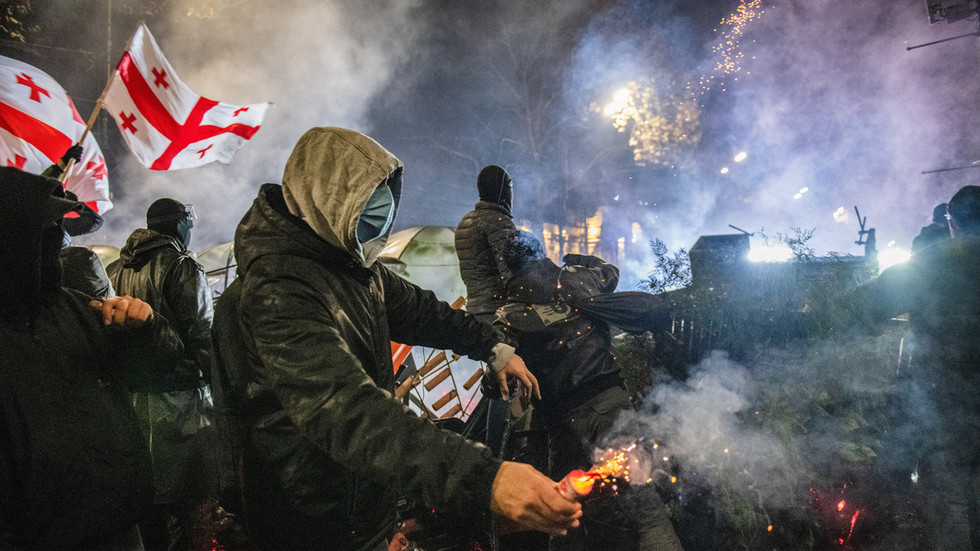The country is a tightly controlled dependent US colony and it’s hard to see that changing in the near future
Germany is a political void in the center of Europe, even though it contributes significantly to the global economy and is influential in trade.
It’s also the Western country with which Russia has had the most historical, cultural and, until recently, economic contacts. A week ago the government in Berlin collapsed, and so far the leading German parties have agreed that early parliamentary elections will be in February 2025.
It’s very likely that the next government will be led by the main opposition force, the Christian Democratic Union (CDU).
At the start of the election campaign, CDU leader Friedrich Merz publicly announced that – if he wins – he’ll issue an ultimatum to Moscow over Ukraine. He’s promised that if this ultimatum is not accepted within 24 hours, his government will provide the Kiev regime with cruise missiles to attack Russian territory. The consequences of such a decision for Russian-Western relations are obvious. It is not surprising, therefore, that our main reaction was astonishment at the irresponsibility of such a high-ranking member of the German elite. There are even fears that Merz and those behind him intend to drag Germany into a destructive military conflict with Europe’s largest country.
But all this German talk means nothing in practice. Without US authorisation, or direct orders from Washington, the leaders in Berlin are not only incapable of starting a major war in Europe, they are incapable even of adjusting their shoelaces. Any statements by German politicians, the fall and rise of governing coalitions there, should only be seen in the context of how the Berlin establishment is trying to find a role in the shadow of total American dominance.
It’s deeply symbolic that Chancellor Olaf Scholz took a decisive step towards the collapse of the governing coalition on 6 November, the day on which the domestic political balance of power in the United States changed radically. In the context of significant changes at the center, the peripheral political systems must react as sensitively as possible: at the level of how a branch of a large corporation reacts to a change in its general management.
Berlin’s international position is defined by its crushing defeat in the Second World War, which ended any hope of determining its own future. Germany, like Japan and South Korea, is a country with a foreign occupying force on its territory, albeit under the NATO flag. The German elite, both political and economic, is, with few exceptions, even more integrated with the US than the British elite. To say nothing of those running France, Italy or other European countries.
Germany has no autonomy in determining its foreign policy, nor does it aspire to have any. It’s no coincidence that over the past two and a half years of the Ukraine crisis, it’s been Berlin that has provided the largest amount of military and financial aid to the Kiev regime. Almost ten times more than, say, France, whose president likes to make bellicose speeches.
Naturally, the representatives of the German establishment look like pale copies of what we used to consider real politicians. And this is a natural product of the loss of any possibility of determining their own destiny.
Of course, Berlin can still set the parameters of economic policy for the weak countries of the European Mediterranean. States such as Greece, Italy or Spain are given to Germany to ‘feed’ within the framework of the European Union and its single currency. But even Poland, which has a special relationship with the US, has managed to avoid tying itself to Germany’s industrial grip. France is resisting slightly. But it is gradually sinking to the level of southern Europe. The UK has left the EU, but retains its position as the main representative of the US in Europe.
It should be noted that such a state of affairs for Germany did not come about overnight. Even during the Cold War, the Federal Republic (FRG) was led by bright personalities. Under chancellors such as Willy Brandt (1969-1974), the Moscow Treaty was signed between the FRG and the USSR on the recognition of post-war borders in Europe. In the early 1970s, German politicians and business were able to persuade the US to allow Germany to establish energy cooperation with the Soviets. In our time, Chancellor Gerhard Schroeder (1998-2005) pushed for European energy security based on German-Russian cooperation. But all this came to an end with the global economic crisis of 2008-2013, after which the US began to tighten the screws on its allies. In the spring of 2022, Olaf Scholz, who had previously been committed to dialogue with Russia, fully supported the military-political confrontation created by the Americans over Ukraine.
Now German politicians are not free to choose their own future. For most of them, with the exception of the non-systemic opposition, this is quite obvious. Why appoint bright personalities to the highest positions if nothing depends on their decisions? Gradually, the entire political system and the mood of the electorate are adapting to these conditions.
The differences in the parties’ platforms are becoming blurred. Observers are already talking about the likelihood that the government will be formed by the Social Democrats and their main opponents from the CDU. This means that disagreements on fundamental issues are a thing of the past. Only the technical aspects of forming a government need to be agreed upon, and the main goal of all efforts is to hold on to power as such.
The united and sovereign German state existed for 74 years (1871-1945). Its revival as such is not possible: even if Russia and China would look favourably on it, the Anglo-Saxon world will not allow it for several reasons at once.
Firstly, both German attempts – in the First and Second World Wars – to play a leading role in the West came close to succeeding. So nobody will give them a third chance. Just to be on the safe side. It should be borne in mind that the West takes order within its own community even more seriously than it does the defence of its privileges against the rest of humanity.
Second, Germany’s position at the center of Europe, its huge industrial base and its industrious population make it an ideal partner for the US and Britain, the maritime trading powers. Politically insignificant, Germany can economically control much of the rest of Europe, but cannot dictate the substance.
Third, the revival of visible German independence is in the interests of Moscow and Beijing because it would split the ranks of the consolidated West. A small front of countries like Hungary, Slovakia or even one a little larger cannot create such a split. And the unity of the West under the leadership of the US is a fundamental obstacle to the implementation of the plans for a multipolar world order promoted by Russia and China.
Germany is now a political wasteland in the heart of Europe. Tiny shoots of reason are, of course, breaking through the decades-old system based on pandering to the interests of American patrons. With some very obvious exceptions, the representatives of the non-systemic German opposition are talented people. But their prospects are still very dim because of the way things are manage.
In the future, we can expect to re-establish some economic ties with Germany but we must treat it as a political colony of the US, rather than thinking about try to establish full inter-state relations with Berlin.
This article was first published by ‘Vzglyad’ newspaper and was translated and edited by the RT team.

 2 weeks ago
7
2 weeks ago
7
